#essentials of realism
Explore tagged Tumblr posts
Text

#artists on tumblr#popplio#summer#pokemon#still life#essentials of realism#schoolism#this is the last picture of my course! juuuust finished it inside 2023#it's supposed to be a representation of summer with my dear popplio#Popples
879 notes
·
View notes
Note
haiii question,,,, sorry for being kinda dumb here but what would be the point of sending emails to hapiele? the story is written already and akatsuki redebuted (???) so what Will they do then? would they just take back the things that happened in the event? sorry again for the bother! i dont go to twt or social media that much so im lost,,,
Thank you for asking, and this isn't a dumb question at all. Of course, contacting HappyElements has been quite the undertaking, so it's only natural to want to know what we should expect. This is a bit lengthy since I wanted to put as much perspective as possible, and as always, I do not mind if others wish to add to this.
The most important thing to acknowledge is that this is an unprecedented scenario, so we're making estimates about how HappyElements will respond. At best, we hope that HappyElements complies with the requests made in the emails and nothing less, with these requests being a) the removal of Ibuki from AKATSUKI since this plays into the existing discrimination and Japanization of Ryukyuans and b) the careful consideration of how Indigenous characters are written going forward. Other additional goals may be added at individual discretion, but in relation to AKATSUKI and Ibuki, this is our main focus.
There is a chance that Enstars can edit or change the story. For example, in Izumi's event, "One Drop * A Specially Chosen Mad Party in UNDERLAND", fans raised concerns about how Izumi and Leo's backstory was mischaracterized in the story, and the line was later changed. However, when it comes to AKATSUKI and Ibuki, we should acknowledge that our concern is with the story as a whole, not a few lines, and so this is not likely. Should HappyElements decide to edit the story, they would likely be attempts to soften the blows that they dealt - but especially for a subject matter like this, it most certainly does not change the fact that the blow is still being dealt.
Another hope is that, even if it does not change AKATSUKI's event, it will push HappyElements to be more considerate in the future with regards to discrimination and characterization. We know that Enstars has been able to change its trajectory with how it approaches topics. For instance, Arashi's earliest stories contained both homophobic and transphobic stereotypes (specifically, she had many stereotypes associated with gay men, which is why the earliest translations of !-era stories tend to use he/him pronouns exclusively. At the time, her gender was not explained.) However, as years passed, the quality of her stories has noticeably improved, with a greater emphasis on her relationship with her gender. Hopefully, pressure from fans will encourage HappyElements to consider the racist, anti-Indigenous message that its pushing, and reevaluate how to approach Ibuki and other marginalized characters.
Some fans are also taking the angle of focusing on mischaracterization as a sort of "foot-in-the-door" technique. Again, as was the case with Izumi, if we can argue that certain things are out-of-character and that the continuous mischaracterization will be a threat to HappyElements' profits, then we might be able to use that momentum to target the racism in the story, since for AKATSUKI, the mischaracterization has been done to facilitate the discrimination that we see, and thus is not wholly separate from the issue. (Though on that note, fans have been asked to emphasize the treatment of Ibuki, since we must not treat occassional mischaracterization as comparable to active discrimination rooted in prejudices that continue to affect Ryukyuans in the present.)
At the same time, we must acknowledge that HappyElements has not made any efforts of note regarding other concerns raised by fans. Most relevantly, the event "Answer * Matrix of Stars Drawn Towards One Another" contains racist, anti-Indigenous sentiments in its depiction of the Amagi village. Instead of taking inspiration from Ainu culture as has been the case with the Amagis thus far, they made the Ainu village a sci-fi setting. Japanese imperialism has worked tirelessly to erase the culture of the Ainu in order to assimilate them. By making the Amagi village less culturally rooted and more fantastical, Enstars erases the presence of Ainu culture from their world - likely because it wasn't deemed interesting enough, since Enstars does value its shock factor - which is insensitive to the plight that the Ainu face to this day.
With all this in mind, we have to remind ourselves that this situation is still developing. The reaction to fans' emails has been mixed in the past, and the response to concerns of discrimination especially has been disappointing. Though, we also need to acknowledge that this is arguably the strongest, most concentrated reaction of the fans towards HappyElements, and we cannot allow them to intimidate us, nor can we allow them to forget that they are enabling dangerous anti-Ryukyuan sentiments that are not without real-life consequence.
Lastly, as I personally see it... even if "nothing" happens, I still ask that fans continue to pressure HappyElements. If HappyElements cannot treat marginalized people with respect, then at the minimum we should do the opposite and show marginalized fans that we stand with them. As I've mentioned time and time again, what we have seen in Enstars is reflective of real-life prejudices that are actively harming people. Even if HappyElements' mind does not change, other people observing the situation may reevaluate their own biases, and we can counteract whatever harms could occur as a result of HappyElements' lack of care.
#asks#enstars boycott#enstars#ensemble stars#akatsuki#ibuki taki#I understand that this isn't very conclusive. however both realism and hope are essential to deciding how we move on from here
61 notes
·
View notes
Text
Okay lads put your nichest dr in the tags. Yap to your hearts content. (If it is a fandom please elaborate!) GO!
#my nichest is either: my marscorp dr which is essentially a terraforming dr but with the characters from my comfort sci fi podcast#I want to experience a botany career living on a space station and give e l hobb a hug#or:#my music hall/tipping the velvet inspired dr where i am pretending to be a male servant and i fall in love with one of the ladies of the#household whilst also discovering the theatre tradition of music hall#or maybe even my magical realism dr where i wake up one day in rural spain with no idea how i got there and i have to solve a murder#which is an elaborate set up to learn spanish#in a similar vein i have a professor layton dr which I'm super proud of#reality shifting#shiftblr#shifting community#shifting motivation#adult shifters#shifting blog#shifting to desired reality
26 notes
·
View notes
Text
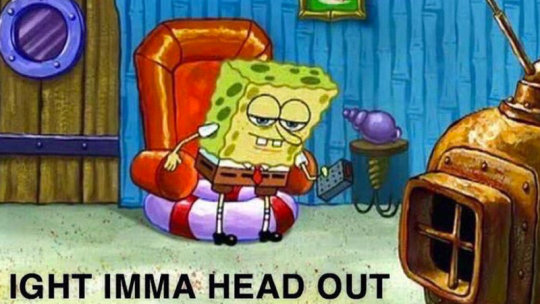
#too much discourse and no actual content makes me a dull boy#I'll return when the dash and tags are no longer full of people rehashing essentially the same takes over and over#especially since it's starting to veer dangerously close to discourse about capitalist realism or whatever#and I'm in danger of not being able to mind my business dsdghjkll#let me know when there's an upload. unless it's the sims in which case just put me out of my misery. give me the old yeller#dnp have addressed and begun resolving the actual material problems at hand so it’s just discourse for discourses sake now#and that’s fine if you’re into it. but I am not
7 notes
·
View notes
Text
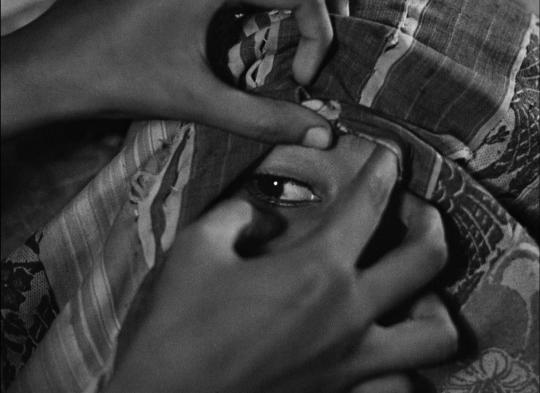



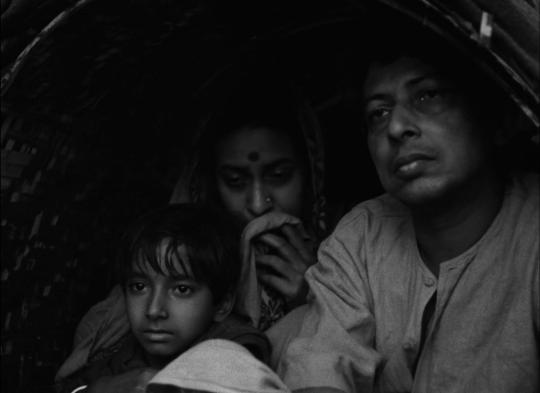
Pather Panchali (1955) Directed by Satyajit Ray
#pather panchali#satyajit ray#1955#indian cinema#bengali cinema#realism#humanist cinema#coming of age#rural life#neorealism#austerity and beauty#family and struggle#visual poetry#subrata mitra#bimal roy influence#cinema of emotions#nature and innocence#soulful storytelling#life and hardship#classic world cinema#arthouse film#existential journey#timeless masterpiece#50s cinema#essential films
7 notes
·
View notes
Text
PapyrusPikmin1997 replied on Chapter 5: Now, this is an amazing fic, but like… how the hell is Olimar and the President dying in like sublevels 1-3 of the dream den? They aren't even that hard, and canonically the Pikmin leaders cannot die by pure damage, as in Pikmin 2 if both leaders "die" the ship just beams them up back to the surface and the day ends. (Unless however, you don't do it like this and instead make their life support damaged or something, which would be a very intelligent workaround)
Anonymous asked a question on my main blog: I know this sounds random, but for DLD, what... "game mechanics" have been changed? Because, so far it seems like the ""game"" is much harder and ruthless. I can infer that no longer does losing both captains just result in the hocotate ship beaming them up, ending the day and causing all the pikmin to die, but what else?
I received this comment reply and anonymous ask a few days ago, and considering that they're talking about very similar things, I figured I'd respond to them both at the same time. The long and short of it is that both of these questions are making a series of aggressive assumptions about how DLD "works" and kinda getting sidetracked as a result. There are also a few misconceptions that I feel are important to correct, because even if you are thinking of things in vague game mechanics terms (and you shouldn't be), they make it much easier to swallow what's going on if you properly account for them.
Fundamentally, DLD is a grounded story with a strong emphasis on how things would play out in a more or less real-world scenario while factoring known series lore; this groundedness is meant to make the emotional conflicts at the core of the story stand out all the better. For more details, let's continue below the cut, starting with correcting the assumptions.
Number one: The President hasn't been accompanying Olimar on any of his trips to attempt to find Louie. He may be physically present on PNF-404, yes, but he's more or less functioning as a middle-manager type or rubber-stamp than doing anything actually useful. This is demonstrated during the first scene of XVI and compounded via the President's noted absence during every other scene in the chapter. The long and short of it is that he's not relevant to the story that needed to be told here, as this story is very much about Olimar, the Pikmin, and their relationship; having the President be present as anything more than a nod to canon would have made things unnecessarily complicated here in a section that already had too much to say.
Next up: Olimar being alone in the Dream Den (aside from the ship's pod and the Pikmin he brought with him) also solves that "difficulty" issue more or less. I also never said that they specifically died on the first three sublevels — the Dream Den obviously has fourteen, and the only important part of the whereabouts everyone died is that the maximum sublevel they could have reached would be sublevel 13. It's important for the mainline sequels that neither Olimar nor the Pikmin encounter the Titan Dweevil here, so they must have all died before getting to that point; other than that, the exact details of their demise are up to the reader's interpretation, with the most likely scenario being a gradual decline in Pikmin numbers until Olimar fucks up in an encounter with any enemy, gets squashed by any kind of boulder or caught in a bomb rock explosion, or takes too great a blow to anywhere near his head such that his already-compromised helmet shatters and leaves him to slowly succumb to the caustic oxygen in the air.
Another thing is that considering what's "canonical" from the game's perspective is kinda the wrong question to ask in a lot of ways. HP bars or stamina wheels or any other kinds of video game abstractions like that work perfectly fine when you're playing a video game, but the second you're not they become really weird to work with and place very awkward limits on things. From a narrative perspective, working with this video game logic — where Olimar can get thrown around willy-nilly for 12-16 hours taking hard falls or getting crushed by boulders or god knows what else, end the day, and come back the next morning like nothing happened — makes things very awkward, because there aren't any consequences for fucking up. None of the Pikmin games have any kinds of systems to account for major injuries, such as Olimar's dislocated shoulder or Louie's implied concussion both from chapter 4; much less do they have any kinds of energy or stamina system to account for Olimar gradually starving in Chapter 1. Some games have systems like these — take the Fallout series as only one of many examples — but limiting what you can write to what is Explicitly Possible in a game just isn't conducive to writing a good story.
Having the day end when both leaders go down but letting the player try again tomorrow with no consequences other than losing a day is a good choice for a game, because it gives the player a chance to correct their mistakes; however, it's a bad choice for a story, because it removes all of the stakes. On the contrary, part of the reason that Pikmin doesn't have a lot of these systems for longer-term consequences and instead handwaves why some of these things aren't happening — such as PNF-404's relative lower gravity being the reason why none of the characters take fall damage — are because adding those systems would be bad for gameplay. In a game that is very fundamentally about doing things quickly and efficiently, it wouldn't just be annoying if e.g. Louie broke his leg and couldn't move and throw Pikmin at the same time due to needing crutches for a realistic length of healing time, it would be bad game design because it would be far too punishing to be fun. In writing, where the goal is to be fun by having higher stakes, the opposite would be the case.
That's a bit of an oversimplification — not every story benefits from higher stakes, even if DLD itself does — but one could easily write an academic paper about storytelling in interactive vs non-interactive mediums and how they function differently, and I don't have ten billion years to come up with definitions for all of these things to explain everything wrong with applying the rules of a certain medium universally especially when those rules are intended as abstractions. Either way, it comes down to the same thesis statement: "Applying the rules of a very dynamic and choice-based medium to an entirely predefined and non-interactive medium generally does not work well unless you're having your story be about applying those rules and all of the myriad problems or conveniences that it results in." DLD is not about applying Pikmin's video game logic to a non-interactive medium because it has far more important and deliberate things to be about, like communication, trust, personhood, fate, and perhaps most of all, dogs. Therefore, it does not benefit from having simplified video game logic that allows for infinite tries, and would in fact be made infinitely worse if everything that happened so far had no consequences beyond the end results of the immediate day. Olimar needs to die in the Dream Den because this is essential for his character arc; having him just "go down" and "get rescued" to "try again tomorrow" removes all stakes from this, because if he throws himself at the problem enough he'd eventually luck out and be able to save Louie. (Olimar is already very fond of throwing himself at problems until they get fixed; as we'll see, he doesn't need a "get out of jail free" card or a "get out of a bad situation without dying" card to continue with this behavior.)
So if we're not working off of video game logic, how does DLD generally work? More or less real life logic strongly informed by canon material. To some extent it's a vibes thing — I have definitely picked and chosen what works or doesn't depending on my own personal preference, and I've taken liberties with things that happen in the games as necessary to tell the story that I have in mind. For instance, as I've alluded to before, a lot of the rules about Onions and Pikmin work much more similarly to how they do in Pikmin 4 (with the exception of the three-type limit because it's purely a gameplay limitation put in place to not frustrate noobs). Some things, such as the exact symptoms of Olimar's leaflingism, are a blend of various ideas taking inspiration from canon, from other artists, as well as just what works better thematically. (Olimar growing a tail and "fur" certainly emphasizes the fact that he's a dog, not to mention the fact that it's that perfect combination of "cool" and "utterly horrifying", and the fact that his face remains uncovered by leaves has another thematic reading that we'll get to much, much later.)
But a lot of the minor day-to-day stuff is grounded pretty solidly in reality and an understanding of "if you were an inch tall, how would you approach this situation", which is much more effective for conveying the level of Absolute Deep Shit and general danger PNF-404 presents almost the entire time. You would not survive if a boulder three times as wide as you were tall rolled over you; Olimar and the other captains only do because Pikmin doesn't have permadeath, since that would be a very frustrating gameplay experience. You can cheat your way out of things like that hurting as much as they would for you, a Normal Human, especially when you factor in the fact that they are an inch tall, but past a point there's only so much handwaving you can do before you have to accept that half of the things that you only take "major damage" for in Pikmin would just be nearly instakills in real life. Allowing for more realistic damage creates more story, not less; you can't take damage from cornering too tightly in any of the games, but allowing it to jar Olimar's shoulder like that in Chapter 4 gives reasonable stakes that add to the situation rather than detract, as it makes it feel even more like the water wraith is a real threat.
As for other "game mechanics" that have been changed… thinking of DLD as a "game" in general is the wrong question. My philosophy with DLD so far has been to create a relatively grounded story about people and choices using Pikmin as a scaffold. (Not that DLD or any of its side material could ever be divorced from Pikmin itself — they're far too intertwined — but being faithful to game mechanics is literally the last priority that will only ever be nodded at in things such as the occasional mention of the max 100 squad size.) For everything else, I've tried to flesh the setting out using "speculative realism" where possible: by examining how things actually work in real life and applying those same principles to this setting.
For instance, while a lot of the medical science is simplified for a variety of reasons, such as ease of research and reduced scene complexity, almost all of it so far has actually had at least a little bit of research put into it. (Maybe don't orally ingest a topical eye medication, but tetrahydrozoline hydrochloride is a common active ingredient in eye drops or nasal sprays that reduces mucus membrane irritation; Omnicillin Z3 uses the naming convention of antibiotics in the penicillin family, implying that their medical science has progressed beyond ours; and demethoxycurcumin, one of the "active ingredients" in turmeric, is a yellow-orange compound that has anticancer effects among many other health benefits.) I've put a similar level of pseudorealism into the flight scenes as well; I've mentioned Olimar using various kinds of checklists multiple times (Wikipedia only has a page on preflight checklists, but here's a full list of checklists for a 747), and implied that Olimar has been acting as captain and pilot flying while the Hocotate Ship is effectively first officer and pilot monitoring via both of them effectively employing cockpit resource management principles. I even had Olimar do a walk-around on Day 30, though that was admittedly less of an intentional choice than being simply what the scene required for proper pacing. Even a lot of the specifics around how Olimar has been able to live as a leafling up to (and beyond) this point have had a lot of consideration put into them with vague real-life-adjacent explanations — it is admittedly more vibes-based than some of the rest of what I've listed out here, but most of that is because leaflingism in and of itself is a rather hefty lift away from grounded reality.
The long and short of it is: If something is actually important to be thinking about, the story will tell you that. If it's not, it won't. It should be easy enough to figure out what the actual differences are from there, but a lot of those differences simply aren't relevant on any grand scale.
In fact, the only "game mechanic" I can think of that's even vaguely relevant (and isn't essentially rolled into "baseline lore", such as the mechanics of Pikmin and Onions that I mentioned earlier) is Pikmin 1's ending requirements. DLD has simplified these requirements, in that there's no longer a strict two-tiered system with some specific parts being required while others are optional, but the general outline for part count has already been referenced in Chapter 1's title. In these relaxed requirements, you get the bad ending with 24 parts or fewer; the neutral ending with 25-29 parts; and the true ending with 30 parts. (I.E., the only change is that it's any 25 parts being required to get the neutral ending or greater rather than 25 specific parts.) Chapter 1 splits the difference as the exact dividing line between two wildly divergent outcomes of the bad or neutral endings, and thus the chapter title references 24.5, or the numeric dividing line between those endings.
Other than that, the exact game mechanics of all games in the series are for the most part entirely irrelevant. DLD is a story about people, and critically, one of the most important things that a person can do is die. Robbing Olimar and the Pikmin of their ability to end is a choice that must be made very deliberately, with great intent on the part of the story being told, and shouldn't be done merely out of faithfulness to the source material. …And that's about all I can say to avoid unnecessary spoilers.
#dogs leading dogs#dld posting#ask#i think that mostly sums it up. idk this perspective just seems like a very odd way to approach reading a fic? at least to me#but maybe there are other writers out there who are actively faithful to the weird game mechanics above all else?#or just haven't written anything that goes counter to some of these game mechanics?#idk. just a very interesting perspective here#but yea. i won't say DLD is trying for 100% realism (i can't get a degree in everything ive thought about re: this fic series so far)#but Grounded is a good way to put it. olimar and the pikmin can face realistic consequences for their mistakes.#this is essential for having those mistakes mean anything. and in a story ABOUT making mistakes and fixing them. it's so important.
5 notes
·
View notes
Note
I know you said you wouldn’t touch a modern silm au with your foot but you Must consider the hilarity of modern Eöl living by himself in the woods with no electricity or cell service or a phone because he thinks the government uses phones to spy on him. And now imagine him dating nepo baby Curufin who is losing his mind because he can’t text his bros when he’s at Eöl’s place
Are we sure Eöl doesn't think Curufin is a government spy?
How did he even found him in the middle of the wood?
#curufin getting lost in the wood and stumbling over Eöl in a accident#Eöl thinks the government IS spying on him and they send their cutest spy#i also want to clarify here that i would read my mutuals modern AU fic#i really just dont enjoy them so much :(#fantasy always was and will be my favorite genre 💕#worst AU's for me to read are high-school and coffee shop AU's#first of all i know jack shit about highschool and im frankly too old for that kind of drama#and the coffee shop AU's are missing the realism of essential crisis working in a gastro branche gives you
6 notes
·
View notes
Text
Native Instruments – Una Corda Download
Native Instruments – Una Corda: A Distinctive Piano Experience

Product Details: A DISTINCTIVE, PURE PIANO
Explore the evocative tones of Native Instruments – Una Corda, a handcrafted upright piano that redefines the possibilities of musical expression. With a full range of sound characters – from soft and resonant to percussive and textural – this instrument offers unparalleled creativity and realism. Meticulously sampled, Una Corda delivers everything from intimate realism to lush, resonant overtones, making it an essential addition to your sound library.
Introducing UNA CORDA
Delicate and Different
Una Corda faithfully captures the signature sound of a unique, custom-made piano designed by David Klavins in collaboration with composer Nils Frahm. Unlike traditional pianos, Una Corda features one string per key, resulting in an exquisite tone that’s ideal for film scoring, electronic music, pop, or jazz. Whether you’re crafting serene melodies or creating experimental textures, Una Corda’s distinctive sound will captivate your audience.
Three Sources of Creativity
Una Corda offers three distinct sound banks, each designed to inspire:
Pure: Captures the resonant sound of a single string struck by the hammer, offering clarity and richness.
Felt: Introduces felt material between hammers and strings, reducing attack noise and delivering a gentle, smooth sound reminiscent of an unplugged vintage electric piano.
Cotton: Adds a noisier, percussive attack with more pronounced overtones, ideal for creating unique sonic textures.
Each sound bank provides a starting point for shaping your creative vision.
Enhanced Sound Design
Take your sound further with Una Corda’s advanced sound design capabilities. Add texture by incorporating:
Noise from fabric preparations
Mechanical sounds and pedal actions
Room ambiance
Enhance realism or venture into experimental territory by integrating vintage outboard gear effects like hiss, compression, and saturation. From dry, gritty tones to liquid pads and swirling soundscapes, Una Corda adapts to your creative needs.
Adjust Your Tone Easily
Una Corda’s intuitive interface puts full control of the instrument at your fingertips:
Sound Banks: Choose from Pure, Felt, or Cotton.
Workbench: Sculpt core characteristics, from dynamics to overtones.
Response Section: Adjust tonal dynamics and add resonant overtones.
Finish Section: Apply vintage effect chains, reverbs, and other tools to refine your sound.
Effortlessly transform a pure piano into a noisy, percussive instrument or an ambient soundscape with these powerful tools.
Made for KOMPLETE KONTROL
Designed for seamless integration, Una Corda is fully compatible with Native Instruments’ KOMPLETE KONTROL keyboards. Experience the ultimate performance with the KOMPLETE KONTROL S88, featuring fully weighted hammer-action keys for an authentic piano feel.
Uncover the Original Una Corda
Discover the story behind Una Corda’s creation. In collaboration with Nils Frahm, David Klavins crafted a contemporary upright piano that pushes the boundaries of traditional design. Watch the video “Creating Una Corda” to gain insights into this groundbreaking instrument’s origins and evolution.
Why Choose Una Corda?
Una Corda is more than just a piano. It’s a gateway to a world of delicate, distinctive, and dynamic sounds that inspire creativity. From its rich tonal palette to its intuitive design, Una Corda is perfect for composers, producers, and musicians seeking fresh, evocative sounds for their projects.
Explore Una Corda Today
Experience the unmatched sound of Native Instruments – Una Corda and elevate your music production to new heights. Find out more and listen to the audio demos on the product page.
#vstplugins#audio#sonokinetic#expressiveinstruments#creativecomposing#gamesoundtracks#filmscoring#soundlibrary#musiclibrary#musicproduction#Native Instruments – Una Corda: A Distinctive Piano Experience#Product Details: A DISTINCTIVE#PURE PIANO#Explore the evocative tones of Native Instruments – Una Corda#a handcrafted upright piano that redefines the possibilities of musical expression. With a full range of sound characters – from soft and r#Una Corda delivers everything from intimate realism to lush#resonant overtones#making it an essential addition to your sound library.#Introducing UNA CORDA#Delicate and Different#Una Corda faithfully captures the signature sound of a unique#custom-made piano designed by David Klavins in collaboration with composer Nils Frahm. Unlike traditional pianos#Una Corda features one string per key#resulting in an exquisite tone that’s ideal for film scoring#electronic music#pop#or jazz. Whether you’re crafting serene melodies or creating experimental textures#Una Corda’s distinctive sound will captivate your audience.#Three Sources of Creativity#Una Corda offers three distinct sound banks
2 notes
·
View notes
Text
im about 120 pages into gideon the ninth and im in love with this funky butch dyke <3
#she's so me#gideon the ninth#i miss fighting#and im LOVING the realism with the sword fighting bc YES it should be hard to switch fighting styles bc it IS#i spent 7 years doing what was essentially streetfighting (kenpo) and tried to learn jujitsu and i could not get the hang of ground fightin#my brain is hard wired to believe if im taken to the ground the rules go out the window and i go feral#bc if your doing self defense focused it usually does mean all rules go out the window
4 notes
·
View notes
Text
Folktales and spirits animate this lively coming-of-age tale of two Jamaican-Trinidadian sisters in Brooklyn grappling with their mother’s illness, their father's infidelity, and the truth of their family's past Sisters Zora and Sasha Porter are drifting apart. Bearing witness to their father’s violence and their mother’s worsening illness, an unsettled Zora escapes into her journal, dreaming of being a writer, while Sasha discovers sex and chest binding, spending more time with her new girlfriend than at home. But the sisters, like their parents, must come together to answer to beings greater than themselves, and reckon with a family secret buried in the past. A tale told from the perspective of a mischievous narrator, featuring the Rolling Calf who haunts butchers, Mama Dglo who lives in the ocean, a vain tiger, and an outsmarted snake, The Human Origins of Beatrice Porter & Other Essential Ghosts is set in a world as alive and unpredictable as Helen Oyeyemi’s. Telling of the love between sisters who don’t always see eye to eye, this extraordinary debut novel is a celebration of the power of stories, asking, what happens to us when our stories are erased? Do we disappear? Or do we come back haunting?



#book: the human origins of beatrice porter and other essential ghosts#author: soraya palmer#genre: fantasy#genre: magical realism#genre: contemporary#genre: lgbt
6 notes
·
View notes
Text
Guy who just learned about Ren’s hermitheus theory What If I Wrote Another Enormous AU
#abt the only thing I love more than ‘Minecraft realism’ genre for these guys… sci if w spaceships…#um. what if I put some stdisco in there. for fun and profit and mostly serotonin.#would it at all fit w the actual hermitheus theory? only barely. I like to build parodies essentially#but like. hermitheus Compels Me#esp w the grumbot terminal like HELLO?????#about the author
2 notes
·
View notes
Text
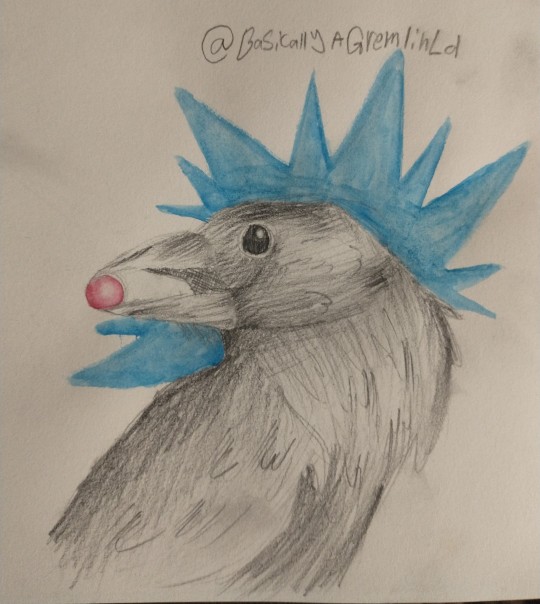



Have some quick realism studies for your troubles
#I dont typically do realism#but#GOD#is it fun#So I'll probably do more of it in the future#honing in on the essentials and allat#sketch#art study#realism#watercolour art#water color#GremGob art#Spotify
0 notes
Text
The Philosophy of Natural Kinds
The philosophy of natural kinds deals with the classification and categorization of objects, entities, and phenomena in the natural world. It explores the concept of natural kinds as groups or categories that reflect the structure of reality, rather than arbitrary or human-made classifications. This area of philosophy is central to metaphysics, philosophy of science, and philosophy of language.
Key Concepts in the Philosophy of Natural Kinds:
Definition of Natural Kinds:
Natural vs. Artificial Kinds: Natural kinds are categories that exist independently of human thought or social conventions. They are contrasted with artificial or conventional kinds, which are categories created by humans for practical purposes. For example, "water" and "gold" are considered natural kinds, while "furniture" or "vehicles" are seen as artificial kinds.
Essential Properties: Natural kinds are often thought to have essential properties, which are the characteristics that all members of the kind share and that define what it means to belong to that kind. For instance, the chemical structure H₂O is an essential property of water.
Realism about Natural Kinds:
Metaphysical Realism: Realists about natural kinds argue that these kinds exist independently of human beliefs, language, or practices. According to this view, natural kinds reflect the objective divisions in nature, and science discovers these kinds rather than inventing them.
Essentialism: Some realists hold an essentialist view, which suggests that natural kinds have a set of necessary and sufficient conditions (essential properties) that determine their membership. For example, the essence of a species like "tiger" includes certain genetic and biological traits.
Nominalism and Conventionalism:
Nominalism: Nominalists, on the other hand, deny the existence of natural kinds as objective features of the world. They argue that categories are constructed by humans and do not reflect any inherent divisions in nature.
Conventionalism: Conventionalists believe that the categories we use to classify the world are based on human conventions and practices rather than on any intrinsic structure of reality. According to this view, what counts as a natural kind is largely determined by social or linguistic conventions.
Philosophical Issues:
Inductive Inference: Natural kinds are often linked to the problem of induction in philosophy. The idea is that if natural kinds are real, they can support inductive inferences—generalizing from a sample of observations to broader conclusions. For example, observing that all samples of water boil at 100°C (under standard conditions) allows us to infer that this is a property of the natural kind "water."
Scientific Classification: The philosophy of natural kinds has significant implications for scientific classification. Scientists rely on the notion of natural kinds to group entities in ways that reflect underlying natural structures, which is crucial for forming scientific laws and theories. For example, the periodic table in chemistry is a classification of elements based on their natural kinds.
Challenges to the Concept of Natural Kinds:
Biological Species Problem: One of the major challenges to the idea of natural kinds is the problem of biological species. In biology, species are often seen as fluid and not always fitting neatly into natural kinds because of evolution, gene flow, and hybridization. This challenges the idea that species have essential properties or that they are fixed natural kinds.
Homeostatic Property Cluster (HPC) Theory: In response to such challenges, some philosophers propose the HPC theory, which suggests that natural kinds are not defined by a single essence but by a cluster of properties that tend to co-occur due to a stable underlying mechanism. For example, a species might be defined by a cluster of genetic, morphological, and behavioral traits that are maintained by evolutionary processes.
Natural Kinds in Chemistry and Physics:
Chemical Elements: The concept of natural kinds is perhaps most straightforward in chemistry and physics, where elements and fundamental particles are seen as paradigmatic examples of natural kinds. Each element on the periodic table is classified based on its atomic number, which is considered an essential property of that kind.
Subatomic Particles: In physics, particles like electrons, protons, and neutrons are also treated as natural kinds, with specific properties (e.g., charge, mass) that define their identity.
Natural Kinds in the Social Sciences:
Debate on Social Kinds: The application of the concept of natural kinds to the social sciences is more contentious. Some argue that categories like race, gender, or mental disorders should be treated as natural kinds, while others see them as socially constructed and not reflecting natural divisions in the world.
Social Kinds as Natural Kinds: Some philosophers propose that certain social kinds could be considered natural if they are stable and have causal powers similar to those of natural kinds in the physical sciences. For instance, certain mental health conditions might be seen as natural kinds if they consistently manifest specific symptoms and respond to particular treatments.
The philosophy of natural kinds is an exploration of how we categorize and understand the world around us. It raises important questions about the nature of reality, the basis of scientific classification, and the extent to which our concepts reflect objective divisions in the natural world. Whether natural kinds are real or constructed, essential or cluster-based, the debate continues to shape our understanding of science, language, and reality itself.
#philosophy#epistemology#knowledge#learning#education#chatgpt#ontology#metaphysics#Philosophy of Science#Essentialism#Realism#Nominalism#Classification#Scientific Taxonomy#Induction#Biological Species Problem#Homeostatic Property Cluster (HPC) Theory#Natural Kinds in Chemistry#Social Kinds#Philosophy of Language#Naturalism
0 notes
Text
An Education
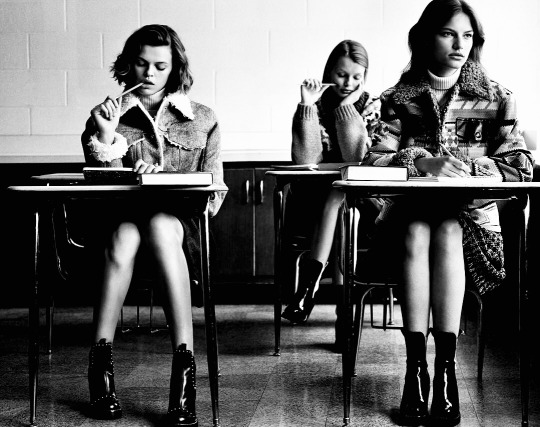
“How lovely, the way we wreck ourselves on the world; here we shine in it, too.”
-Cecilia Woloch, Girl in a Truck, Kentucky Highway 245-
Live kind, love pretty—care for what you think...
#writing#quote#poetry#women writers#love#life#education#meaning#all eternal things#love in a time of...#somewhere warm#hope springs#in bloom#feeling a moment#inside of me#beauty's where you find it#light me up#depth perception#essential thinking#perspective matters#magical realism#more than words#september baby#this is how it goes#elisa english#elisaenglish
1 note
·
View note
Text
like imagine you’re tim minear and you decide to be edgy and kill off your beloved main of 8 years after promising you’d never do that, not on your show that’s not what this is all about haha don’t even worry. but lol it’s edgy and shocking and needed for realism (even though in this season alone another beloved character survived an unsurvivable throat slashing with essentially no complications) and so that obviously means it’s good. and then the ep gets a 4.0 rating on imdb and major blowback from both devoted fans and general audiences because the way you killed off said beloved main sucked absolute dogshit. and then there were a weird amount of hints and inconsistencies and leaks that pointed to the character being alive after all, which thank god for you because again, 4.0 on imdb. and you have time to walk it back even if you were originally going to stick to your guns because of the hiatus. but instead you decide the best approach is to spend 40 minutes of the highly anticipated memorial episode on a b plot about a character believing their loved one to be alive after being declared dead, despite the fact that the character you killed’s widow doesn’t seem to even be operating under this delusion anyway. and instead of using that heavy handed metaphor to bring the beloved character back, which would be perfectly in line with the entire shows whole deal, you give all the main characters who loved him best approximately 8 seconds of screentime to express their grief. so not only did you waste that b plot to make a point that didn’t need to be made, you fucked it so bad that you couldn’t even deliver the heart wrenching send off you teased for weeks while smugly telling reporters how important it was for the future of the show that you do this. and also you’re bald
#911 abc#911 spoilers#ok i’m gonna go pack. if he’s alive next week we’ll revisit but personally if i were tim id kms
3K notes
·
View notes
Text
bedtime stories are essential for a child’s growth—they bring families together, foster creativity, and, occasionally, make your children dream a little too wildly. but when your husband is involved, bedtime stories become something else entirely.
sukuna, with his eyes gleaming under the dim nursery light, cleared his throat. babykuna, bundled up in a nest of plush blankets, stared up expectantly, little hands clutching a well-loved, slightly drooled-on copy of the little mermaid. the two feline overlords of the household, mr. pickles the maine coon and baby the orange tabby, sat at the foot of the bed like judgmental literature critics. “alright, brat, let’s get this over with,” sukuna grumbled, flipping the book open with unnecessary force.
“once upon a time, there was a little mermaid who was a total dumbass.”
babykuna giggled. sukuna smirked, feeling accomplished.
“she fell in love with some random guy she saved from drowning, which—let’s be honest—probably should’ve been a red flag for him. but, whatever, she went to a shady sea witch, literally signed away her voice, and—”
mr. pickles gave a loud, drawn-out meeooow. baby, not one to be outdone, stood up and began kneading at sukuna’s arm aggressively, a clear sign of feline displeasure. babykuna’s giggles faltered, little brows furrowing.
the great and mighty sukuna was being heckled. by a pair of cats. “what?” he scowled. “this is realism. the brat needs to know that—”
baby lunged. tiny paws, soft but full of silent rage, landed squarely on sukuna’s chest. mr. pickles followed, his sheer weight nearly knocking sukuna off balance. “oh, you read it then, you furry little dictators!” sukuna barked, trying to reclaim his spot, but it was too late—the feline coup had begun. babykuna, sensing an opportunity, reached out with tiny hands.
“mamaaaaaa!”
within seconds, you were summoned, the true ruler of bedtime stories. with a smug smile, you took the book, settled in beside babykuna, and began reading in a voice so soft and mesmerizing that even the cats curled up, content. sukuna, defeated, crossed his arms and sulked. “i was getting to the part where she turns into sea foam,” he muttered.
“and that,” you said, flipping a page gracefully, “is why you have been overthrown.”
meanwhile, in the nanami household, peace reigned. yuuji was already buried under his blanket, head resting on your shoulder as nanami turned a page in james and the giant peach. his voice was smooth, perfectly paced, as if he were personally trained by roald dahl himself.
“…and then, the peach broke free, rolling down the hill, gathering speed—”
you sniffled. nanami paused. “are you crying?” he asked, a single brow raised.
“it’s just… the way you narrate…” you wiped your eyes dramatically. “it’s so good.” yuuji, completely unbothered, snored into your arm.
nanami sighed, closing the book for the night. “if i recall correctly, you made me read matilda three times in a row last week just because you liked my narration.”
“and i regret nothing,” you declared. yuuji snored louder. nanami shook his head and leaned over to press a kiss to your temple, then to yuuji’s forehead. “alright, lights out.”
meanwhile, at the fushiguro household, bedtime negotiations were in full swing. “megumi, mama’s got an early mission tomorrow,” you reasoned, tucking him in. “so just one story tonight, okay?” megumi crossed his arms, unimpressed.
“papa’s not home yet.”
“he’s working.”
“so that means i get two stories when he’s back.”
you sighed. your son was already a little strategist. giving in, you started with your usual—a story about a brave princess who tamed a dragon with kindness, something soft and magical. by the time you finished, megumi’s eyes were drooping. perfect. he was almost asleep.
then, the door creaked open, and in walked toji. megumi perked up immediately. “papa, story!” toji groaned, rubbing the back of his neck. “didn’t mama already—”
“two stories. it’s a rule,” megumi declared. toji gave you a look, and you simply shrugged. you weren’t the one who raised a bedtime tyrant. so, toji sat down at the edge of the bed, cracking his neck before launching into a very different kind of tale.
“aight, kid, so there was this guy—real nasty piece of work, always hid out in this old warehouse, right? well, guess what? i—uh, i mean, our hero, batman—had to take him out before sunrise.” your eyes narrowed.
“toji.”
“what?” he grinned. “i’m censoring it.”
megumi, already half-asleep, murmured, “what happened next?” toji smirked. “our hero dodged a knife, flipped over the bad guy, and bam—knocked him out cold. then he disappeared into the night.” megumi was completely out, breathing soft and even.
toji shot you a wink. “works like a charm every time.” you sighed, pinching the bridge of your nose. “you’re not supposed to use your assignments as bedtime stories.”
“why not?” toji smirked. “keeps him entertained.”
“you’re gonna turn him into a vigilante.”
he kissed your cheek, grinning. “well, at least he’ll be well-rested for it.”
in the gojo household, bedtime stories are a prime-time production. "alright, babytoru," gojo grinned, settling into bed beside his six-year-old daughter, who was vibrating with excitement. "where were we?"
“season six, episode four!” she announced. “princess toru and the forbidden candy kingdom!”
“aaahh, yes,” gojo smirked, flipping through an invisible script. “last time on bedtime stories, princess toru was betrayed by her most trusted royal advisor—sir mochi the talking panda.” babytoru gasped.
“mochi betrayed me?!”
“tragically,” gojo nodded. “but! fear not, for your knight in shining armor—sir papa—has infiltrated the candy kingdom’s fortress.”
"did he bring weapons?"
"no! he brought the power of love and charisma, obviously."
babytoru clapped. gojo, fully immersed, dramatically reenacted the entire rescue operation, throwing in last-minute plot twists, a villain redemption arc, and a musical number (he made up the lyrics on the spot). this bedtime story series started when babytoru was four, and now, at nearly six, they were six seasons in, complete with christmas specials, crossover episodes, and merchandising potential. if gojo played his cards right, he could sell the rights to a producer friend, get an animated series going, and dedicate it all to his little girl.
"alright, that’s a wrap for tonight!" gojo declared.
babytoru yawned, already half-asleep, mumbling, “next time, we need a new villain...”
gojo smirked, tucking her in. "leave that to me, princess."
little did she know, next episode was the mid-season finale.
geto believed bedtime stories should be meaningful. something with moral lessons. his twin girls? they did not share this belief.
"okay, papa, one more story!"
geto sighed. "fine. but this one comes with a lesson."
the twins, already suspicious, huddled under the covers. “once upon a time," geto began, voice deep and soothing, "there were two little girls—very much like you two—who forgot to brush their teeth before bed."
the twins gasped.
"they thought, 'what’s the worst that could happen?' but then... the tooth fairy came."
the room fell silent.
"but papa," one twin hesitated, "isn't the tooth fairy... nice?"
"ha! that's what they thought! but this tooth fairy? she didn't collect teeth under pillows. she took them straight from their mouths!"
the twins screamed, clutching their toothbrushes as if their lives depended on it. that night, they slept with their toothbrushes in hand. extreme? maybe. effective? absolutely.
the family dentist was thrilled.
choso’s approach to bedtime stories was simple: classics, classics, classics. his four kids—twin girls and twin boys—were raised on a steady diet of great literature. tonight, they were rereading the great gatsby. "papa," one of the girls yawned, “why does gatsby love daisy so much?” choso sighed deeply, looking out the window as if the tragedy of it all pained him personally.
"because, my little ones," he said, flipping a page, "gatsby believed in the green light, that orgastic future that year by year recedes before us."
one of the boys muttered sleepily, "papa... you read that every time."
"and yet," choso said solemnly, "you still do not understand."
by now, the kids could quote entire passages from memory. sometimes, at school, they would just casually drop lines like, "so we beat on, boats against the current—" and confuse their classmates. one time, during a parent-teacher meeting, their teacher had pulled choso aside and asked, “mr. kamo, why do your children know the complete works of f. scott fitzgerald?” choso had simply nodded in approval.
"good," he said. "their education is going well."
#@gojo#@nanami#@toji#@choso#@sukuna#@geto#jjk headcanons#jjk x reader#jjk x y/n#jujutsu kaisen headcanons#jjk x you#jujutsu kaisen x reader#jujutsu kaisen x you#gojo headcanons#nanami headcanons#toji headcanons#choso headcanons#sukuna headcanons#geto headcanons#gojo x reader#nanami x reader#choso x reader#sukuna x reader#geto x reader
1K notes
·
View notes